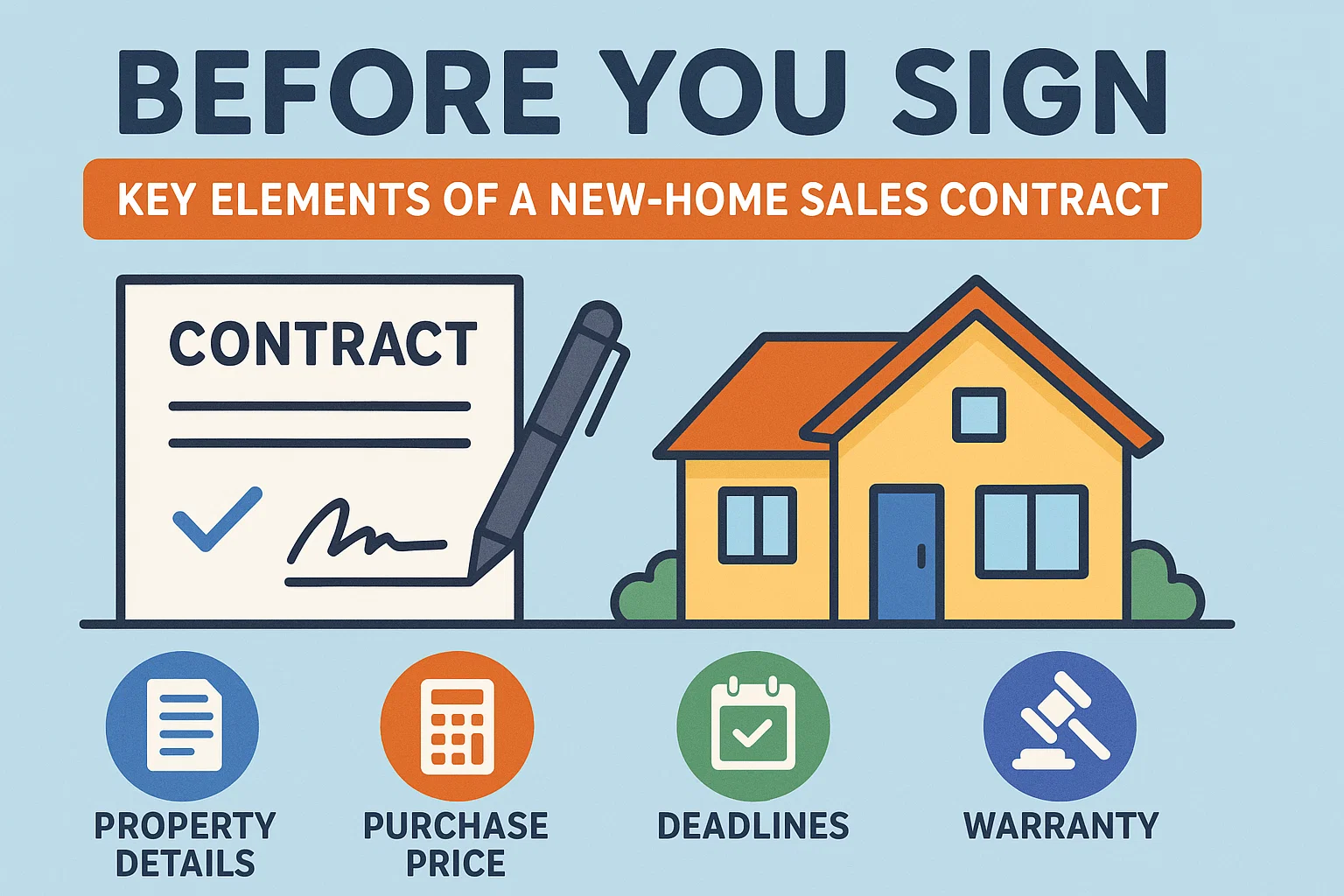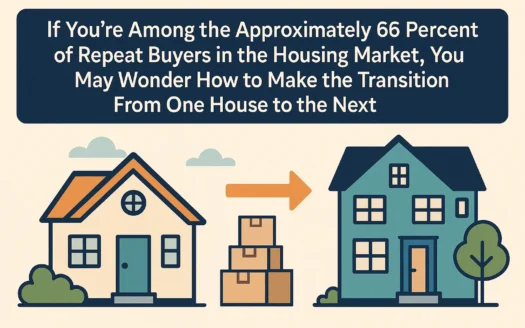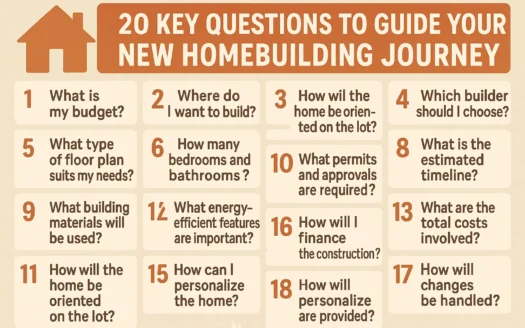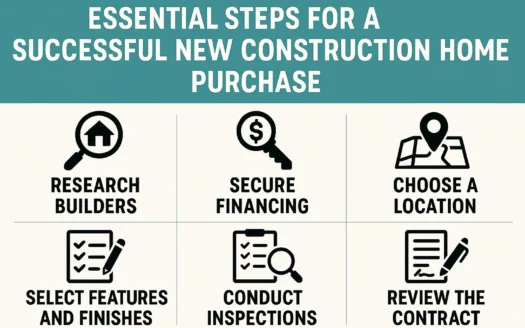Before You Sign: Key Elements of a New-Home Sales Contract
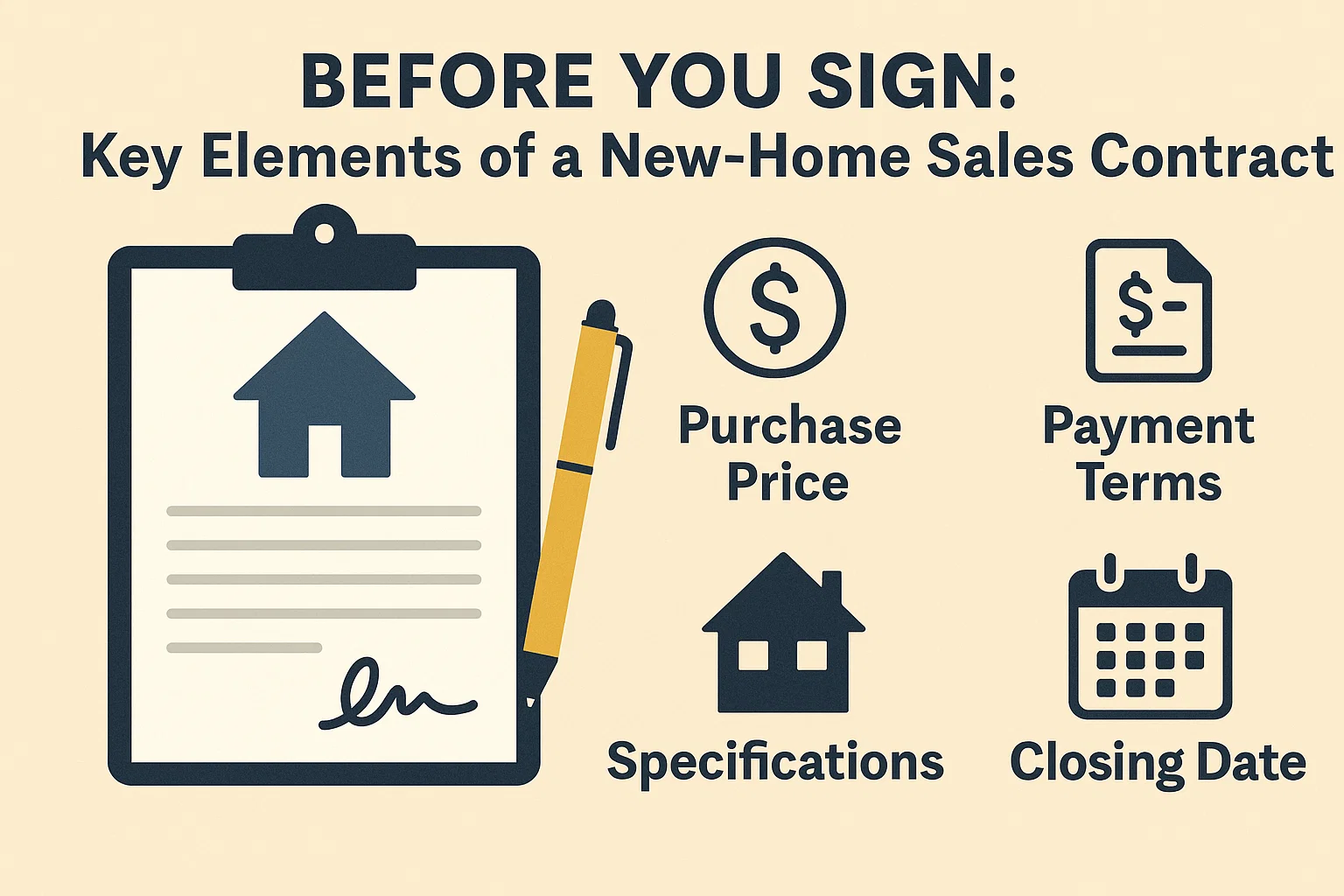
Before You Sign: Key Elements of a New-Home Sales Contract
Before you get the keys to your dream home handed over to you, you’re going to have to sign on the bottom line, initial here and initial there on a plethora of documents. One of the most important ones? The new-home sales contract. But before you stamp your signature on this stack of papers, it’s pivotal you really understand this all-important document. To help you sort it out, we’ve compiled expert insights to answer common questions about new-home sales contracts.
What is in a new-home sales contract?
Brian Rayl, Realtor and co-founder of Home Value Leads: A new-home sales contract has basically the same requirements as a resale contract. It states the projected closing date, the terms of the contract, who pays which expenses, and the obligations of both parties.
What are the most important features to review?
Brian Rayl: The biggest thing to look for is refundability and the dates listed in the contract. Generally, there will be several dates such as the date you need to finalize your choices at the design center, dates you need to have financing approved by, your proposed closing date, etc.
Dianne Langston, Broker at Quality Real Estate Services: Key details include the price you’ll pay, the length of time to secure financing, seller concessions, earnest money amounts, deposit terms, default remedies, property location, exterior design specifics, and whether landscaping is included.
Why are these contracts important?
Brian Rayl: Contracts protect both parties. They ensure the builder is paid for their work and prevent the builder from selling the home to someone else.
How do new-home contracts differ from resale contracts?
Dianne Langston: Resale contracts often allow buyers to rescind the agreement within 17 days, require seller disclosures of known defects, and permit third-party inspections. New-home contracts lack these clauses but include builder inspections during construction and a pre-move-in walkthrough. Buyers seeking third-party inspections must obtain builder permission, as outlined in the contract.
How do lender types affect the contract?
Dianne Langston: Builder incentives may apply if using their preferred lender, such as closing cost assistance. FHA loans require the property to meet habitability standards and protect deposits if the home doesn’t appraise. Conventional loans may have different seller obligations.
Are payment terms included in the contract?
Dianne Langston: The contract outlines the buyer’s payment plan, including down payments and financing terms. However, the buyer’s ability to make payments typically isn’t a contract condition.
What about design selections or construction delays?
Brian Rayl: Design selections are finalized by a specified date, with costs paid upfront. Delays in construction due to unforeseen circumstances (e.g., Acts of God) usually don’t penalize the builder. Contracts may only allow deposit refunds if the builder cannot complete the project.
Special considerations for condos or townhomes
Brian Rayl: Review HOA fees, transfer fees, and builder control of the association until all units are sold. Watch for specialty fees unique to the community.
Can I modify the contract after signing?
Brian Rayl: Changes are difficult once both parties sign. Review the contract thoroughly with a Realtor or attorney beforehand. Negotiate concerns upfront.
Dianne Langston: Builders may consider changes based on sales trends, buyer financing, and design feasibility. Customizations often require upfront, non-refundable payments.

